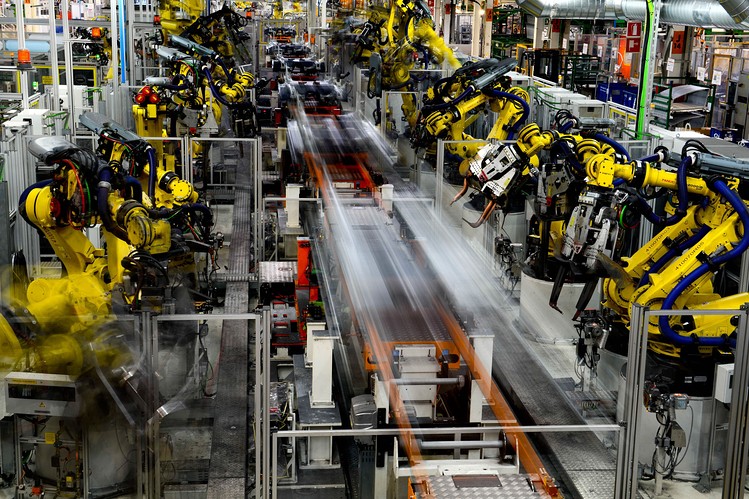Streamlining manufacturing processes is essential for improving productivity, reducing costs, and enhancing overall efficiency in the production line. By optimizing workflows and eliminating unnecessary steps, manufacturers can meet customer demands faster and maintain a competitive edge in the market.
Streamline Workflows
Use the right programming to streamline the manufacturing workflow to control the inventory, improve scheduling, and a lot more. If you need an MRP software, be sure to take the time to choose one that’s going to work well for your business, and that’s going to be beneficial, not just another software to try to use.
Lean Manufacturing
Lean manufacturing is a systematic approach to eliminating waste and maximizing value in production processes. It focuses on creating more value for customers with fewer resources. Manufacturers can implement lean techniques such as 5S (Sort, Set in Order, Shine, Standardize, Sustain), Kaizen (continuous improvement), and Just-in-Time (JIT) inventory management to streamline operations, reduce inventory costs, and enhance productivity.

China manufacturing consultants is one such company that helps manufacturers to cut down the unwanted and unnecessary costs and also helps in improving capacity.
Automation and Robotics
Introducing automation and robotics in manufacturing processes can significantly increase efficiency and precision. Automated machines can perform repetitive tasks faster and with greater accuracy than manual labor. Robotics also improves workplace safety by handling hazardous or physically demanding jobs.
As industries evolve, AI and automation trends are reshaping how businesses optimize production lines. Staying updated with these trends ensures that companies remain competitive and efficient in a rapidly changing market.
Standardization of Work Processes
Standardizing work processes ensures that all employees follow a consistent and efficient approach to production. By defining standard operating procedures (SOPs) and providing training to workers, manufacturers can minimize errors, reduce rework, and improve quality across the production line.
Implementing Quality Control Systems
Quality control is crucial for streamlining manufacturing processes. By implementing robust quality control systems, manufacturers can identify defects early in the production process, reduce scrap and rework, and improve the overall product quality.
Kanban System
The Kanban system is a visual scheduling tool that helps manage inventory levels and production flow. It uses cards or signals to indicate when to produce more parts or replenish inventory. Adopting Kanban ensures that production is aligned with actual demand, reducing the risk of overproduction and excess inventory.
Cross-Training Employees
Cross-training employees in multiple tasks or workstations can improve production flexibility and efficiency. When employees can seamlessly transition to different roles, the manufacturing process becomes more agile, and production delays due to workforce limitations are minimized.
Data Analytics and IIoT
Leveraging data analytics and the Industrial Internet of Things (IIoT) provides valuable insights into manufacturing processes. By collecting and analyzing real-time data from sensors and production equipment, manufacturers can identify inefficiencies, predict maintenance needs, and make data-driven decisions for process optimization.
Supply Chain Collaboration
Collaborating with suppliers and optimizing the supply chain can streamline the flow of materials and reduce lead times. Building strong relationships with suppliers and implementing just-in-time delivery strategies can ensure a steady supply of materials without excess inventory.
Continuous Improvement and Employee Involvement
Encouraging a culture of continuous improvement and involving employees in problem-solving initiatives can lead to valuable process optimizations. Employees on the front lines often have valuable insights into inefficiencies and potential improvements. Their active involvement in improvement projects can lead to better solutions and greater commitment to change.
Real-Time Production Monitoring
Using real-time production monitoring tools and dashboards, manufacturers can track key performance indicators (KPIs) and identify areas that need improvement. By having instant access to production data, manufacturers can make timely adjustments and respond quickly to changing conditions.
Streamlining manufacturing processes is crucial for achieving greater efficiency, reducing costs, and improving overall productivity. By implementing these strategies, manufacturers can stay competitive, meet customer demands, and achieve sustainable success in the dynamic manufacturing landscape.





